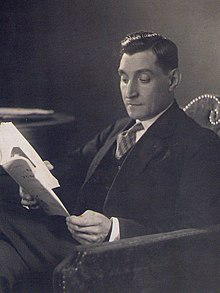

Prime Minister of Portugal
28 April 1889 Vimieiro, Santa Comba Dão, Kingdom of Portugal
27 July 1970(1970-07-27) (81) Lisbon, Portugal
5 July 1932 – 25 September 1968
Prime Minister of Portugal during the Estado Novo Part of a series onConservatism Variants Cultural Fiscal Green Liberal Libertarian National Paternalistic Pragmatic Progressive Populist Social Traditionalist Concepts Civil society Communitarianism Complementarianism Cultural heritage Familism Family values Natural law Natural order Private property Rule of law Solidarity Tradition Philosophers Johnson Hume Burke More Maistre Bonald Chateaubriand Coleridge Müller Carlyle Newman Tocqueville Dostoevsky Taine Strauss Oakeshott Kuehnelt-Leddihn Kirk Buckley Scruton Hitchens Peterson Politicians Adams Karamzin Canning Metternich Disraeli Bismarck Salisbury Baldwin Maurras Salazar Gaulle Franco Reagan Powell Thatcher Kohl Organizations Alliance of Conservatives and Reformists in Europe Caribbean Democrat Union European People's Party International Democrat Union Religious conservatism Christian Catholicism Democracy Fundamentalism Right Hindu Jewish Islamic National variants Australia Belgium Belize Brazil Canada Blue Red Social China Colombia Cuba Denmark Finland France Action Française Gaullism Maurassisme Germany Revolutionary State Socialism Greece Guatemala Hong Kong India Hindutva Mexico New Zealand Pakistan Panama Russia Eurasianism Putinism Serbia Spain Carlism Francoism Switzerland South Korea Taiwan Turkey Democracy Erdoğanism United Kingdom Andism One-nation Thatcherism Toryism United States Compassionate Fusionism Movement Neo Paleo Trumpism Related topics Ancien Régime Anti-communism Aristocracy Corporatism Counter-revolutionary Elite theory Feudalism Conservative feminism Maternalism Monarchism Nativism Patriarchy Radical right Europe United States Reactionary Neo Right-wing politics New Old Small-c conservative Conservatism portal Politics portalvte António de Oliveira Salazar GCTE GCSE GColIH GCIC (/ˌ s æ l ə ˈ z ɑːr / , US also /ˌ s ɑː l -/ , Portuguese: ; 28 April 1889 – 27 July 1970) was a Portuguese statesman and economist who served as the prime minister of Portugal from 1932 to 1968. He was responsible for the Estado Novo ("New State"), the corporatist authoritarian government that ruled Portugal until 1974. A trained economist, Salazar entered public life as finance minister with the support of President Óscar Carmona after the Portuguese coup d'état of 28 May 1926. The military of 1926 saw themselves as the guardians of the nation, but they had no clue how to address the critical challenges of the hour. Within one year, armed with special powers, Salazar balanced the budget and stabilized Portugal's currency. Salazar produced the first of many budgetary surpluses. He promoted civilian administration in the authoritarian regime when the politics of more and more countries were becoming militarized. Salazar's aim was the de-politicization of society, rather than the mobilization of the populace. However, Portugal remained largely underdeveloped, its population relatively poor and with low education attainment when compared to the rest of Europe. Opposed to internationalism, communism, socialism and syndicalism, Salazar's rule was conservative and nationalist in nature. Salazar distanced himself from fascism and Nazism, which he criticized as a "pagan Caesarism" that recognized neither legal, religious nor moral limits. Unlike Mussolini or Hitler, throughout his life Salazar avoided populist rhetoric. Salazar was generally opposed to the concept of political parties when, in 1930, he created the National Union. Salazar described and promoted the party as a "non-party", and announced that the National Union would be the antithesis of a political party. Salazar promoted Catholicism, but argued that the role of the Church was social, not political, and negotiated the Concordat of 1940 that kept the church at arm's length. One of the mottos of the Salazar regime was Deus, Pátria e Família (meaning "God, Fatherland and Family") but he never turned Portugal into a confessional state. With the Estado Novo enabling him to exercise vast political powers, Salazar used censorship and the secret police to quell opposition, especially any that related to the communist movement. He supported Francisco Franco in the Spanish Civil War and played a key role in keeping Portugal and Spain neutral during World War II while still providing aid and assistance to the Allies. Despite being a dictatorship, Portugal under his rule took part in the founding of some international organizations. Portugal was one of the 12 founding members of the North Atlantic Treaty Organisation (NATO) in 1949, joined the European Payments Union in 1950 and was one of the founding members of the European Free Trade Association (EFTA) in 1960, and a founding member of the Organisation for Economic Co-operation and Development in 1961. Under his rule, Portugal also joined the General Agreement on Tariffs and Trade in 1961 and began the Portuguese Colonial War. The doctrine of pluricontinentalism was the basis of his territorial policy, a conception of the Portuguese Empire as a unified state that spanned multiple continents. The Estado Novo collapsed during the Carnation Revolution of 1974, four years after Salazar's death. Evaluations of his regime have varied, with supporters praising some of its outcomes and critics denouncing other outcomes and its methods. However, there is a general consensus that Salazar was one of the most influential figures in Portuguese history. In recent decades, "new sources and methods are being employed by Portuguese historians in an attempt to come to grips with the dictatorship which lasted 48 years."

We use cookies
We use cookies and other tracking technologies to improve your browsing experience on our website, to show you personalized content and targeted ads, to analyze our website traffic, and to understand where our visitors are coming from. Privacy Policy.